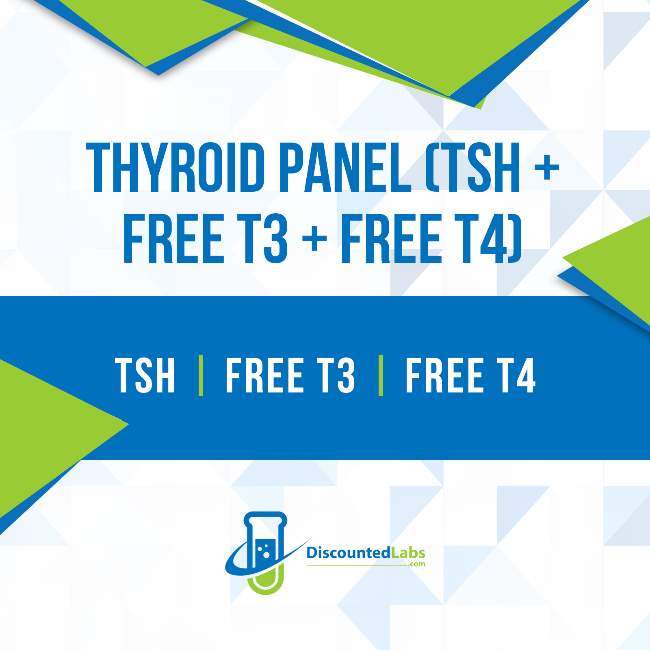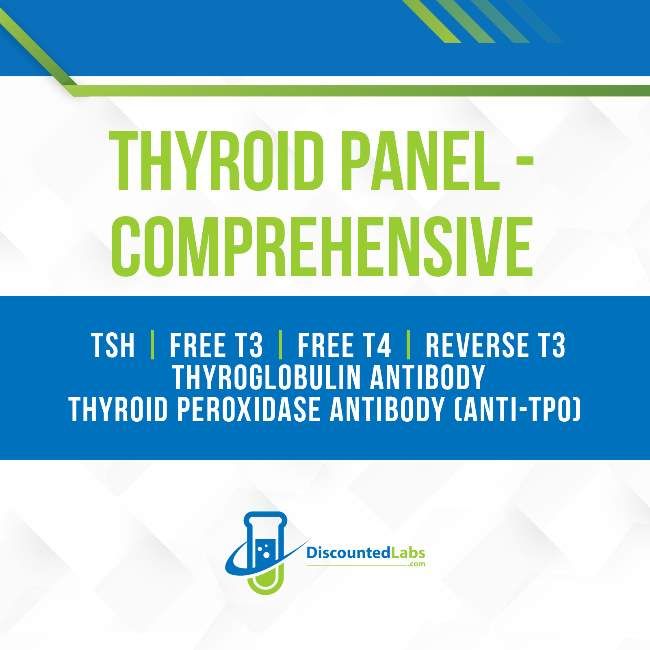Andy Peloquin
New Member
Have you noticed any of the following symptoms?
- Feeling tired all the time, even after a full night of sleep or a nap
- You feel "fuzzy", like there is wool in your brain
- Feeling moody or depressed
- Your sex drive has tanked
- Nerves, anxiety, the "jitters"
- Your digestive system isn't working properly
- You've lost your appetite, or your sense of smell or taste has changed
These are just a few symptoms of thyroid problems.
The thyroid is a small gland that produces, stores, and releases hormones into your body. These hormones--known as liothyronine (T3) and levothyroxine (T4)--control your bodily functions, affecting just about every cell in your body.
However, there are a number of problems that can cause your thyroid function to decrease (hypothyroidism) or increase (hyperthyroidism) drastically. The symptoms listed above are just a few of the ways to tell whether or not you're suffering from thyroid conditions or problems.
So what can you do? Why, get yourself checked out by your doctor, of course! Your doctor will very likely run a Thyroid Stimulating Hormone test to measure the levels of TSH in your body. TSH is a hormone produced by your brain, and it signals to your thyroid to produce the thyroid hormones.
Measuring TSH levels should be a good indication of your thyroid function, right? Unfortunately, that is not always the case…
The TSH Controversy
In the endocrinology community, there are two opinions about the best way to detect thyroid problems.
The first opinion is that TSH testing is an effective method. TSH tests measure the presence of the thyroid stimulating hormone in your body, and compare that to a "normal range" of the U.S. population.
Most U.S. labs believe that "normal" TSH levels are anywhere between 0.5 and 5.0. This is a rough "reference range", one that can change slightly--from 0.4 to 5.5 or 0.6 to 5.7. However, for the most part, a range of 0.5 to 5.0 is considered "normal". But many doctors perform more detailed thyroid tests if TSH is over 3.5.
What does this mean? Simple: if your TSH range is outside these numbers, your thyroid function is abnormal.
Lower than 0.5 indicates that you may suffer from low thyroid-stimulating hormone production, a possible indicator of hypothyroidism (an underactive thyroid gland).
Higher than 5.0 indicates that your body may produce too much TSH, potentially indicating hyperthyroidism (an overactive thyroid gland).
Sounds pretty straightforward, right? Well, the problem with the TSH test is that it only measures the hormone that stimulates your thyroid gland. It doesn't measure the actual levels of hormones produced by your thyroid gland and circulating through your body. So, can it be a truly accurate measure of thyroid function?
That's where the "other" opinion comes in. Many endocrinologists believe that a TSH test isn't the only--or the most accurate--method to test for thyroid function. In fact, TSH tests may be a lot more inaccurate than believed, thanks to the differences in TSH "reference range".
You see, this range of 0.5 to 5.0 is really a rough estimate, a measurement established by evaluating mean TSH levels in a wide group of people. It doesn't take into account individual brain function, hormone levels, health, etc.
Even if your levels are within the "normal range", you may not be free and clear of hyper- or hypothyroidism. If your levels trend toward the higher end of the "normal range", it may be an indication of low-level thyroid problems, or thyroid problems still developing. Those with TSH levels in the upper-normal range often went on to develop thyroid conditions.
What does this mean? It's proof that the reference range may be outdated and in need of a change. If the range remains at 0.5 to 5.0, doctors may believe that "higher than normal" thyroid levels are, in fact, "normal", and could lead to incorrect diagnoses and thyroid conditions going untreated. By changing the range to 0.5 to 3.0 (slightly lowering the "high end" of normal), endocrinologists would be able to catch potential thyroid conditions earlier on. This could lead to better treatment and management of thyroid problems.
Thankfully, TSH testing isn't the only option to give your doctor a clear diagnosis of thyroid problems. According to several clinical guidelines, TSH testing is not the only accurate measure for determining thyroid function. The guidelines recommend other types of thyroid tests, including:
- T4 serum levels (free T4)
- T3 serum levels (free T3)
- Thyroid antibodies
- Radioactive iodine uptake
- Thyroid scan
All of these tests are meant to not only diagnose thyroid problems
 but to find the cause behind the problems. It's a more complete method for assessing and diagnosing both hyperthyroidism and hypothyroidism.
but to find the cause behind the problems. It's a more complete method for assessing and diagnosing both hyperthyroidism and hypothyroidism.
Some physicians not only follow guidelines but also believe that testing free T 3 along with TSH is a better way to diagnose hypothyroidism.
As mentioned before, the major hormone made by the thyroid is T4, but T3 is far more active than T4. T4 gets stored in the tissue throughout the body and is converted to T3 as that particular tissue requires it. T3 is the active hormone.
Physicians can treat hypothyroidism by giving T4, and then hoping that the patient will convert it to T3 as needed, but all too often T4 does not get adequately converted to T3. In fact, some diabetic patients may have a normal T4, but a low T3. These people lack the enzyme that converts T4 to T3. Some educated physicians double check by looking at reverse T3 which is an inactive form of T3, and it is frequently elevated in people who cannot make adequate amounts of active T3. Some physicians believe that when they test for low thyroid, the most important thing to test for is free T3 which is the active form of T3. The inactive form is T3 bound to protein molecules or globulins in the blood.
Check out this page for a complete list of thyroid-measuring tests
So, what should you do with all this information? You're no doctor, so how does this help you?
Simple: ask your doctor about your test results, and see what he says. If your TSH levels are higher than 2.0, it may be a sign of thyroid problems. Even if the doctor says the TSH tests prove that your thyroid function is normal, ask him to run the tests listed above--the ones that actually measure thyroid function, rather than just measuring the amount of thyroid-activating hormone. You want the most accurate measurement of your thyroid function, and the tests listed above will provide the clearest diagnosis possible.
- Feeling tired all the time, even after a full night of sleep or a nap
- You feel "fuzzy", like there is wool in your brain
- Feeling moody or depressed
- Your sex drive has tanked
- Nerves, anxiety, the "jitters"
- Your digestive system isn't working properly
- You've lost your appetite, or your sense of smell or taste has changed
These are just a few symptoms of thyroid problems.
The thyroid is a small gland that produces, stores, and releases hormones into your body. These hormones--known as liothyronine (T3) and levothyroxine (T4)--control your bodily functions, affecting just about every cell in your body.
However, there are a number of problems that can cause your thyroid function to decrease (hypothyroidism) or increase (hyperthyroidism) drastically. The symptoms listed above are just a few of the ways to tell whether or not you're suffering from thyroid conditions or problems.
So what can you do? Why, get yourself checked out by your doctor, of course! Your doctor will very likely run a Thyroid Stimulating Hormone test to measure the levels of TSH in your body. TSH is a hormone produced by your brain, and it signals to your thyroid to produce the thyroid hormones.
Measuring TSH levels should be a good indication of your thyroid function, right? Unfortunately, that is not always the case…
The TSH Controversy
In the endocrinology community, there are two opinions about the best way to detect thyroid problems.
The first opinion is that TSH testing is an effective method. TSH tests measure the presence of the thyroid stimulating hormone in your body, and compare that to a "normal range" of the U.S. population.
Most U.S. labs believe that "normal" TSH levels are anywhere between 0.5 and 5.0. This is a rough "reference range", one that can change slightly--from 0.4 to 5.5 or 0.6 to 5.7. However, for the most part, a range of 0.5 to 5.0 is considered "normal". But many doctors perform more detailed thyroid tests if TSH is over 3.5.
What does this mean? Simple: if your TSH range is outside these numbers, your thyroid function is abnormal.
Lower than 0.5 indicates that you may suffer from low thyroid-stimulating hormone production, a possible indicator of hypothyroidism (an underactive thyroid gland).
Higher than 5.0 indicates that your body may produce too much TSH, potentially indicating hyperthyroidism (an overactive thyroid gland).
Sounds pretty straightforward, right? Well, the problem with the TSH test is that it only measures the hormone that stimulates your thyroid gland. It doesn't measure the actual levels of hormones produced by your thyroid gland and circulating through your body. So, can it be a truly accurate measure of thyroid function?
That's where the "other" opinion comes in. Many endocrinologists believe that a TSH test isn't the only--or the most accurate--method to test for thyroid function. In fact, TSH tests may be a lot more inaccurate than believed, thanks to the differences in TSH "reference range".
You see, this range of 0.5 to 5.0 is really a rough estimate, a measurement established by evaluating mean TSH levels in a wide group of people. It doesn't take into account individual brain function, hormone levels, health, etc.
Even if your levels are within the "normal range", you may not be free and clear of hyper- or hypothyroidism. If your levels trend toward the higher end of the "normal range", it may be an indication of low-level thyroid problems, or thyroid problems still developing. Those with TSH levels in the upper-normal range often went on to develop thyroid conditions.
What does this mean? It's proof that the reference range may be outdated and in need of a change. If the range remains at 0.5 to 5.0, doctors may believe that "higher than normal" thyroid levels are, in fact, "normal", and could lead to incorrect diagnoses and thyroid conditions going untreated. By changing the range to 0.5 to 3.0 (slightly lowering the "high end" of normal), endocrinologists would be able to catch potential thyroid conditions earlier on. This could lead to better treatment and management of thyroid problems.
Thankfully, TSH testing isn't the only option to give your doctor a clear diagnosis of thyroid problems. According to several clinical guidelines, TSH testing is not the only accurate measure for determining thyroid function. The guidelines recommend other types of thyroid tests, including:
- T4 serum levels (free T4)
- T3 serum levels (free T3)
- Thyroid antibodies
- Radioactive iodine uptake
- Thyroid scan
All of these tests are meant to not only diagnose thyroid problems
Some physicians not only follow guidelines but also believe that testing free T 3 along with TSH is a better way to diagnose hypothyroidism.
As mentioned before, the major hormone made by the thyroid is T4, but T3 is far more active than T4. T4 gets stored in the tissue throughout the body and is converted to T3 as that particular tissue requires it. T3 is the active hormone.
Physicians can treat hypothyroidism by giving T4, and then hoping that the patient will convert it to T3 as needed, but all too often T4 does not get adequately converted to T3. In fact, some diabetic patients may have a normal T4, but a low T3. These people lack the enzyme that converts T4 to T3. Some educated physicians double check by looking at reverse T3 which is an inactive form of T3, and it is frequently elevated in people who cannot make adequate amounts of active T3. Some physicians believe that when they test for low thyroid, the most important thing to test for is free T3 which is the active form of T3. The inactive form is T3 bound to protein molecules or globulins in the blood.
Check out this page for a complete list of thyroid-measuring tests
So, what should you do with all this information? You're no doctor, so how does this help you?
Simple: ask your doctor about your test results, and see what he says. If your TSH levels are higher than 2.0, it may be a sign of thyroid problems. Even if the doctor says the TSH tests prove that your thyroid function is normal, ask him to run the tests listed above--the ones that actually measure thyroid function, rather than just measuring the amount of thyroid-activating hormone. You want the most accurate measurement of your thyroid function, and the tests listed above will provide the clearest diagnosis possible.
Last edited by a moderator:




















